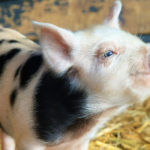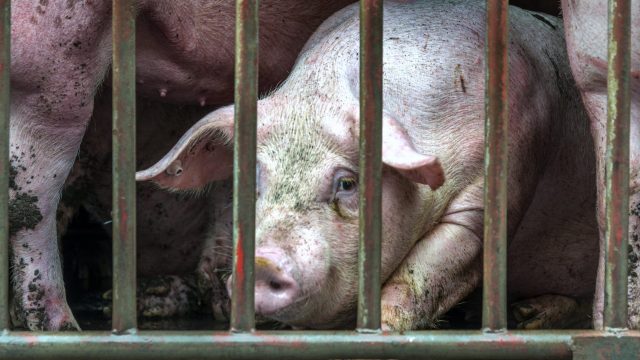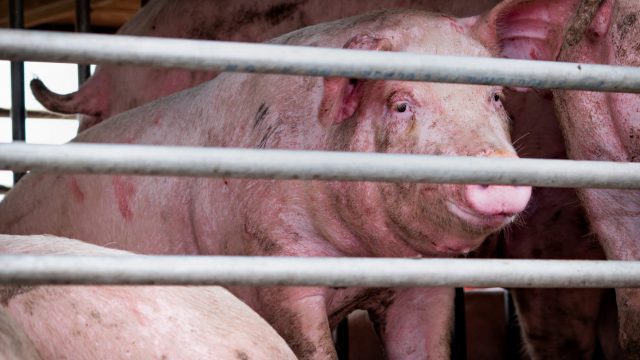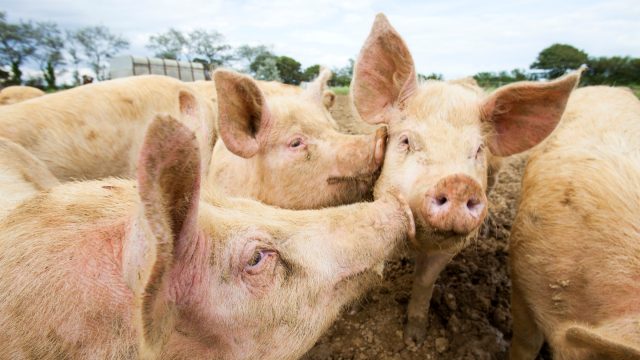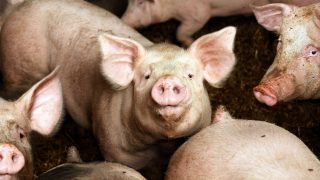
Petition Urges FDA to Reconsider Decision Not to Ban Controversial Drug Ractopamine
Common livestock feed additive poses risks to human health
WASHINGTON — Today, the Animal Legal Defense Fund (ALDF), Center for Biological Diversity, Center for Food Safety, and Food Animal Concerns Trust submitted a petition urging the U.S. Food and Drug Administration (FDA) to reconsider its denial of their requests to reduce or eliminate the allowable levels of ractopamine in farmed animals.
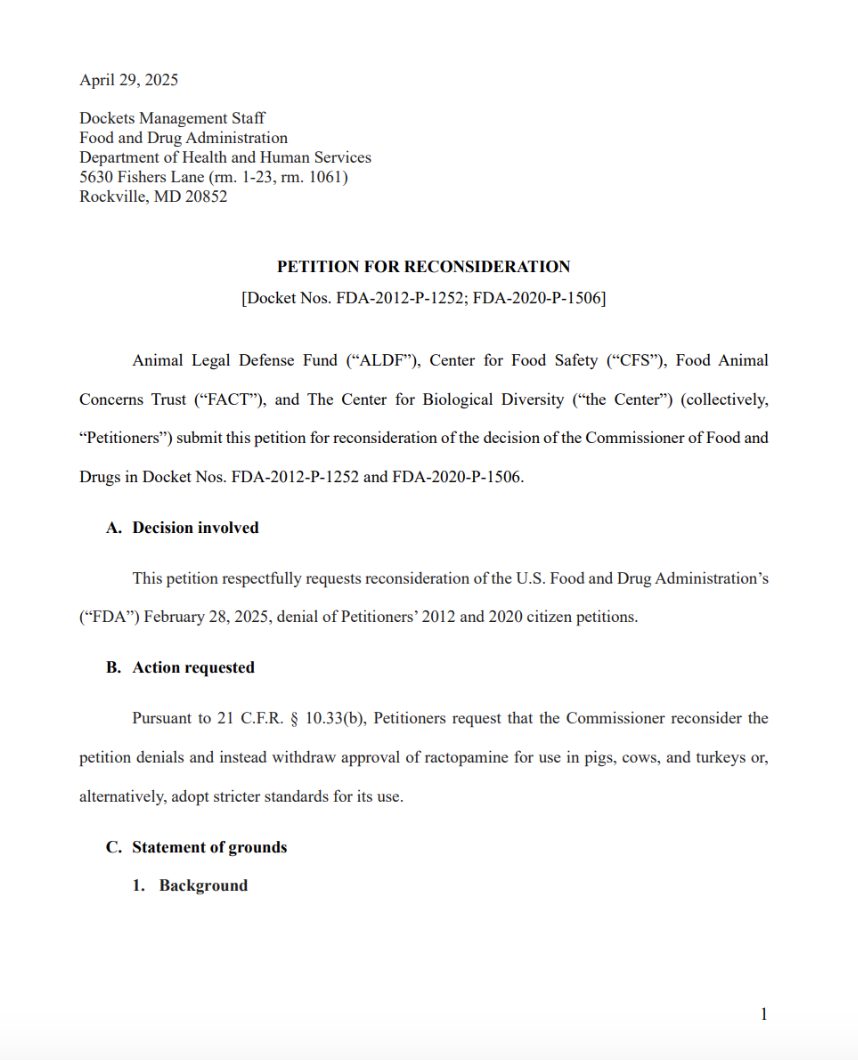
Ractopamine is a drug used to rapidly grow muscle in cows, pigs, and turkeys that also causes animals’ bodies to suffer tremors, lesions, and deterioration, elevates consumers’ heart rates, and harms the environment and aquatic species.
“The FDA — whose obligation is to protect public health — continues to cave in to the industrial animal agriculture industry on the use of ractopamine’s safety despite the agency’s long history of concerns about its risks,” said Daniel Waltz, managing attorney at ALDF. “The response from the FDA gives a pass to the myriad harms from ractopamine and abdicates its responsibility to ensure the safety of humans, animals and the environment.”
Ractopamine is a nontherapeutic, beta-agonist drug created and marketed by Elanco Animal Health to boost growth rates in farmed animals. In the U.S., it is widely used in the industrial raising of pigs and cows on factory farms. Animals given ractopamine face increased likelihood of experiencing painful injury, inhumane treatment, and extreme stress. It is generally administered during the animal’s final weeks of life.
“We’re calling on President Trump and Secretary Kennedy to Make America Healthy Again by taking this extraordinarily risky drug out of our food,” said Hannah Connor, environmental health deputy director at the Center for Biological Diversity. “It’s outrageous that Democratic and Republican administrations alike have been too timid to take on powerful agribusiness interests to protect Americans’ health, but we hope this administration finds the courage to put a stop to this dangerous drug use.”
Evidence, including from FDA, links ractopamine to human heart and respiratory issues in meat consumers and farm workers, increased risk of disease contagion, and intensified environmental pollution through seepage and runoff to ground and surface waters. Yet, ractopamine continues to be used in a high percentage of all pigs raised for food in the U.S.
“The evidence before FDA is clear: Ractopamine is not safe for our farmworkers and consumers. The time has come for Secretary Kennedy and President Trump to make good on their promise to Make America Healthy Again and ban this dangerous drug from our food system,” said Sylvia Wu, co-executive director at the Center for food Safety.
The petitions cited numerous instances where the FDA’s response failed to evaluate critical evidence:
- The FDA’s response did not consider all previous concerns from the agency about beta-agonists in general and ractopamine in particular, let alone explain why they are no longer applicable. For example, in 1995, the FDA itself articulated the need for studies that would test cardiac effects to humans from the drug. Despite this concern, the FDA appears to have only conducted one small human study, which the agency itself decided to shut down early and after one subject quit because he experienced an increased heart rate.
- The FDA did not respond directly to many environmental concerns identified in the petition, including the risk of spreading antibiotic pathogens to workers and other humans in surrounding communities and the risk that ractopamine can enter groundwater or other waterways and harm wildlife.
- The FDA’s response acknowledged “the literature suggests that pigs fed ractopamine may be more susceptible to metabolic and clinical signs of stress when subjected to stressful conditions, such as handling and transport.” The agency also acknowledged ractopamine has shown effects on pigs including gait problems, reduction in bone mass and strength, inability to walk, broken limbs, and death. But in light of these harms, the FDA’s response declines to find that the drug is “unsafe” for animals.
Over fifty-one groups, led by Friends of the Earth, sent a letter to FDA Commissioner Makary in support of the petition, urging the agency to ban or restrict the use of ractopamine.
Ractopamine is banned or restricted in meat production in at least 168 countries, including China, Russia and all countries in the European Union. Nonetheless, the FDA has approved ractopamine for use in cows, pigs, and turkeys raised for meat in the U.S. and continues to allow ractopamine residue levels in meat that exceed those adopted by the international United Nations’ food standards body, the Codex Alimentarius Commission.
Sign Up!
Join the Animal Legal Defense Fund's email list to stay up to date on lawsuits, legislation, and regulations affecting animals.
Focus Area
How We Work
Related
-
Emergency Petition Filed with FDA to Suspend Ractopamine Approval
As the pandemic leads to reduced capacity at slaughterhouses, prolonged use of drug increases risk of harm.June 4, 2020 Press Release -
Lawsuit Filed Demanding FDA Respond to Petitions Seeking to Ban Ractopamine
FDA’s approval for ractopamine relied primarily on safety studies conducted by the drugmaker.March 26, 2024 Press Release -
Petition: Urge FDA to Protect Farmed Animals and Consumers by Banning Ractopamine
Sign the petition to show you agree that the FDA should join at least 160 countries, including China and all countries in the European Union, to ban or restrict ractopamine in meat production.

